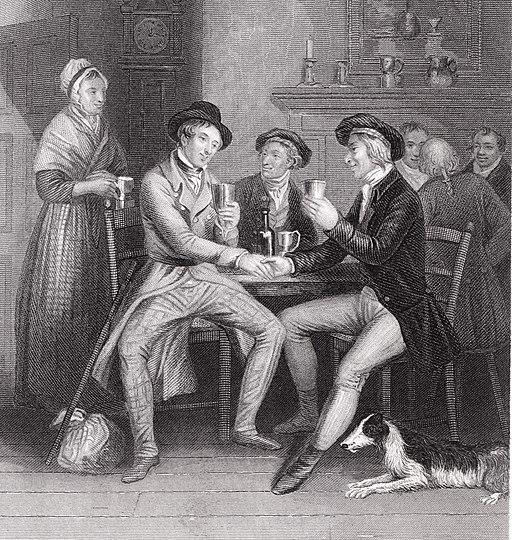*Originally posted on January 12, 2023
Should auld acquaintance be forgot,
And never brought to mind?
Should auld acquaintance be forgot,
And auld lang syne?
(Chorus)
For auld lang syne, my dear,
For auld lang syne,
We’ll take a cup of kindness yet,
For auld lang syne
The New Year evokes memories of old times and no song embodies that sentiment more than Auld Lang Syne. A holiday favorite, Auld Lang Syne is a Scottish poem attributed to Robert Burns but whose melody, which may be older, was written by an unknown author. Burns wrote the words in 1788. The poem, or for that matter, the song makes no mention of the New Year and, according to Britannica, didn’t become associated with the New Year’s festival until the 19th century. Here’s a link to a 1910 recording of Auld Lang Syne. And here’s a choral rendition if you don’t like the historic recording. You’re free to cry.
Lest we forget that this is an intellectual property newsletter, let’s “take a cup o’ kindness yet” and take a brief look at the intellectual property issues raised by the old song. Being more than 200 years old, Auld Lang Syne the poem and the melody — their copyrights having long expired — are definitely in the public domain. When a work enters the public domain, you are free to copy it word-for-word, make derivative copies, make your own recordings, and do whatever the heck you want with it. Any work that is older than the applicable term of copyright law it was created under is deemed to be in the public domain. In the United States, that’s a difficult question to answer for works created in the 20th century. So complicated that you need a reference chart to determine whether a work’s copyright has expired. Cornell University Library publishes a very complete reference for determining whether a work is in the public domain.
For works created before 1927, you can rest assured that they are in the public domain, which includes Auld Lang Syne (melody and lyrics). Don’t get carried away, though. You can’t copy another artist’s arrangement of the old song. So, say you found a jazz rendition of Auld Lang Syne, you run the risk of copyright infringement if you were to copy and record it yourself. In that case, you would need to obtain the appropriate mechanical license from the author.
Copyright expiration is not the only manner in which a work may become public. Here are three other ways noted by the Stanford University library:
- the copyright owner failed to follow copyright renewal rules
- the copyright owner deliberately places it in the public domain, known as “dedication,” or
- copyright law does not protect this type of work [e.g., works created by the U.S. government]
Over the years, Dr. Copyright has written extensively about public domain. If you are interested in the subject, visit our blog and search “public domain”.
Happy New Year everyone.
— Adam G. Garson, Esq.


